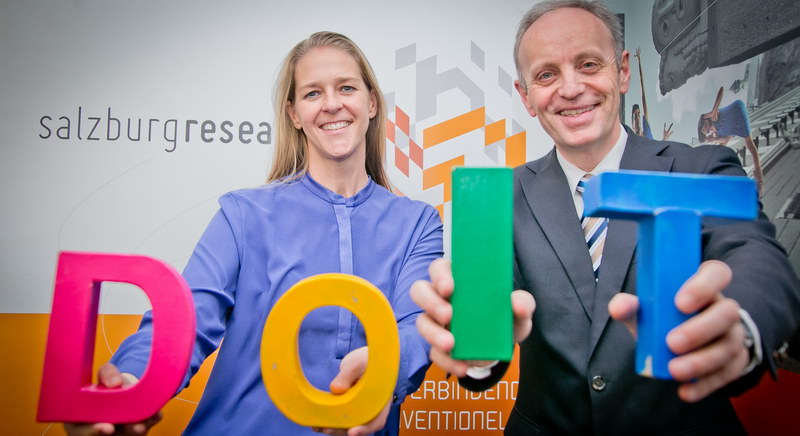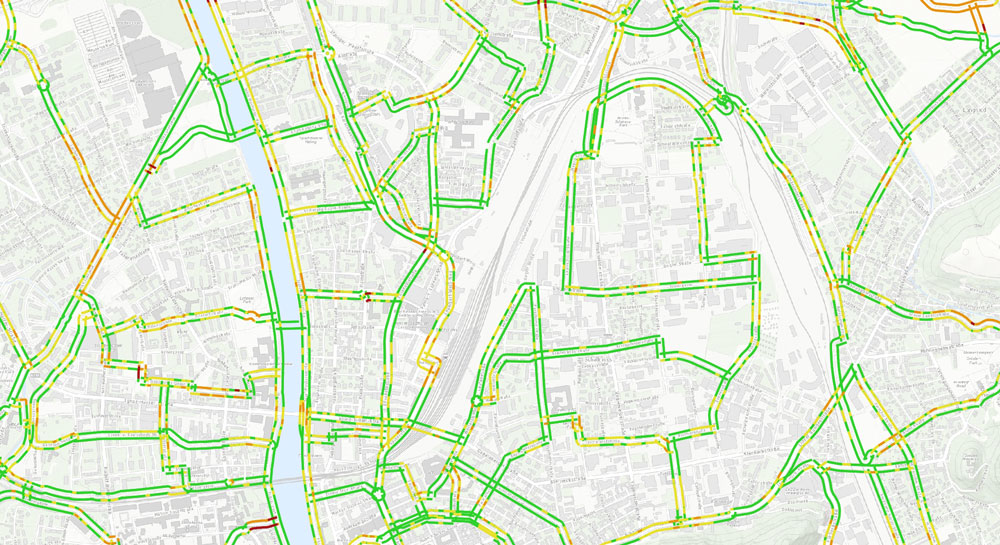
Youth as Social Entrepreneurs
DOIT – the European initiative led by Salzburg Research aims to inspire children and young people between the ages of six and 16 to tackle social issues. For this purpose methods and materials are developed and tested in schools and leisure facilities. One of eleven pilot activities is currently taking place in a Salzburg school.
The current socio-economic climate in Europe is characterized by high youth unemployment and increasing social inequality. The OECD therefore calls for the strengthening of entrepreneurial skills at an early age. The European initiative “DOIT – Entrepreneurial Skills for Young Social Innovators in an Open Digital World” under the direction of Salzburg Research is dedicated to this mission. DOIT wants to inspire students (6-16 years) for social innovation and impart entrepreneurial thinking, know-how and skills. For this purpose, the DOIT program and learning materials are developed and tested on a scientific basis, with which it is possible to develop new impulses for creating thinking and acting.
“We create a framework that allows creativity and brings new solutions to the challenges of our time. Entrepreneurial action and the development of innovative ideas can be learned and experienced”, said Provincial Councilor Andrea Klambauer, responsible for Youth and Generations, during a visit to Salzburg Research in the Science City Itzling.
In the three-year project period, the use and impact of the DOIT innovation-promoting program and the various methods in ten European countries will be tested and scientifically evaluated. The materials are then freely available to interested educational institutions or young learners for information and further use.
Fit into the Winter with Salzburg Students
One of the DOIT pilot projects is currently taking place in Salzburg. Maker-professionals, parents and entrepreneurs work with 20 pupils of the elementary school of the Franciscan girls in the winter semester on “Fit in the winter”. In weekly workshops, the participating children develop innovations and solutions to problems; Strengthen team spirit, error culture and creativity.
With the inventor tool “Makey Makey” and the digital learning and development environment “Scrathc”, the children made the first programming attempts to be able to create problem solutions. For example, with the wooden robot “Cubetto” they made a multidimensional table game that playfully invites their classmates to exercise. The “DOIT detectives” are also looking for potential danger situations in the school and try to find solutions – for example, self-designed warnings signs. “We only give impulses, offer material and guide the children technically. The solution that emerges in each case is up to the children and their creativity”, says Sandra Schön, coordinator of the Europe-wide research project. “These pilot actions are scientifically monitored and evaluated for their effect. Findings from this and particularly effective methods and materials are then provided as a template for imitators free of charge and openly licensed.”
The research project is funded by the European Union in the Horizon 2020 program (grant number 770063).






